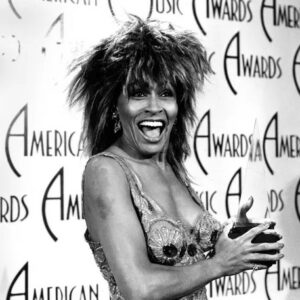Aretha Franklin was a name synonymous with soul, passion, and power. She defined not just an era of music, but also an era of transformation. While her powerful voice captivated millions and her songs became anthems of social movements, Aretha Franklin was also a fierce advocate for the rights of marginalized communities. From her advocacy for racial justice to her unwavering support for women’s rights, Franklin’s activism was as integral to her identity as her music. She understood the power of the platform she had created for herself and used it to demand a better, more equitable society.
At the intersection of music, politics, and civil rights, Franklin’s influence was profound. Her activism, deeply entwined with the political and social climate of her time, transcended the stage and became a tool for societal change. In the following exploration, we will look at how Aretha Franklin’s activism shaped the cultural landscape, particularly in the fight for women’s rights, her collaboration with other key social movements, and the lasting impact of her advocacy.
Introduction: A Legend’s Voice, A Movement’s Advocate
Aretha Franklin was born into the heart of the civil rights struggle. Raised in Detroit, Michigan, Franklin grew up in an environment shaped by the racial inequalities that pervaded much of America in the 20th century. Her father, the Rev. C.L. Franklin, was a prominent pastor and civil rights leader who worked closely with Martin Luther King Jr. in the movement to desegregate the South. This exposure to both religion and social justice would inform Aretha’s musical journey and her role as an advocate for change.
While Franklin’s voice echoed through the charts with hits like Respect and Think, which became anthems of the feminist and civil rights movements, her activism was equally powerful. In an era where women were often relegated to the margins of both the music industry and broader society, Aretha was a trailblazer. She used her celebrity status to raise awareness about women’s rights, racial equality, and poverty, becoming a role model for both black women and the broader feminist movement.
Aretha’s Support for Women’s Rights Organizations
From the beginning of her career, Franklin was vocal about issues of race, gender, and inequality. She was keenly aware of the discrimination faced by women in the music industry and beyond. Aretha knew the importance of amplifying women’s voices and became an active supporter of various women’s rights organizations that championed gender equality, women’s health, and empowerment.
Among the organizations that Franklin supported was the National Organization for Women (NOW), one of the leading feminist groups in the United States. NOW was founded in 1966, at a time when second-wave feminism was gaining momentum. The organization focused on issues such as reproductive rights, gender discrimination, and workplace equality. Aretha’s endorsement of NOW was crucial. As a public figure, she helped draw attention to the fight for women’s rights and called for greater recognition of women in the political and social spheres.
Her involvement in these organizations wasn’t limited to mere appearances. Aretha dedicated her time to fundraising for causes such as women’s health and social services. Her contribution wasn’t just financial; she used her platform to generate awareness, speak on the importance of women’s autonomy, and elevate the voices of those advocating for systemic change. Franklin understood that true empowerment came not just from individual success but from creating a collective movement.
Personal Impact and Advocacy: Using Music to Champion Women’s Rights
Aretha Franklin’s music was a direct reflection of her activism. Songs like Respect and I Say a Little Prayer were not only chart-toppers but also political statements. Respect, originally written by Otis Redding, became Franklin’s anthem of empowerment and self-worth. Released in 1967, at the height of the Civil Rights Movement and the feminist push for equality, Respect spoke to both women and African Americans about their right to dignity and self-determination. The song quickly became an anthem for women, especially in the context of the broader struggle for gender equality.
But Franklin’s activism was not confined to her music alone. She also made a concerted effort to highlight the struggles women faced in society. At a time when women were still fighting for the right to control their own bodies and assert their place in the workforce, Aretha’s presence was a beacon of hope. She didn’t just sing about empowerment; she embodied it. In interviews and public appearances, she talked about the need for women to take control of their lives and fight against the systemic forces that sought to hold them back.
One of the most notable ways Franklin advocated for women was through fundraising and charitable work. She donated time and resources to organizations like Planned Parenthood, which fought for reproductive rights, and The Women’s Foundation, which worked to combat domestic violence and promote women’s health. By dedicating her energy to these causes, Aretha showed that her activism extended far beyond her music, affecting tangible change for women in the real world.
Cultural and Historical Context: The Intersection of Civil Rights and Feminism
Aretha Franklin’s activism did not occur in a vacuum. It was deeply rooted in the cultural and historical context of the 1960s and 1970s, when the United States was undergoing significant social upheaval. Franklin’s activism took place against the backdrop of the Civil Rights Movement, which was focused on racial justice, and the rise of second-wave feminism, which sought to address gender inequality.
As an African American woman, Franklin was acutely aware of the intersectionality of these struggles. She was not just advocating for the rights of women but was also deeply invested in the fight for racial justice. At the time, African American women were often sidelined by both the mainstream feminist movement and the Civil Rights Movement. Franklin, however, was able to use her celebrity to bring attention to the unique challenges faced by black women.
She frequently collaborated with key figures from both movements, including Dr. Martin Luther King Jr. and Gloria Steinem. Franklin’s personal connection to King was particularly significant. Her father, C.L. Franklin, was a close friend and ally of Dr. King, and Franklin herself sang at his funeral in 1968. Her involvement in the Civil Rights Movement was not only about music but also about standing in solidarity with the struggle for justice and equality.
In a 1972 interview with Jet Magazine, Franklin spoke about her dual commitment to civil rights and women’s rights, saying, “I’m working to help lift the voices of all people, especially women and African Americans. I think it’s the most important thing I can do.”
Legacy and Influence: A Lasting Impact
Aretha Franklin’s legacy as an activist extends far beyond her contributions to music. Her involvement in both the Civil Rights Movement and the feminist struggle changed the way people thought about the role of women in society. By the time of her death in 2018, Aretha was universally acknowledged not only as the “Queen of Soul” but also as a towering figure in the fight for social justice.
Her music continues to be a source of inspiration for activists and musicians alike. Songs like Respect remain crucial anthems for movements advocating for gender equality, racial justice, and empowerment. Her direct support for organizations like NOW and Planned Parenthood also cemented her place as one of the most important public figures in the fight for women’s rights.
Aretha Franklin’s impact is still felt today. In a world where women continue to face barriers in the workplace, in politics, and in society, Aretha’s advocacy serves as a reminder of the power of solidarity and the need for continued action. Her activism was not just about words or songs; it was about real, concrete change. Even after her passing, Franklin’s work continues to inspire new generations of activists and advocates for women’s rights.
Her legacy is a testament to the enduring power of music as a tool for social change and a reminder that each of us, regardless of our platform, has a responsibility to advocate for those whose voices are often unheard. Aretha Franklin’s activism was, and still is, a call to action: to respect, to uplift, and to empower.





